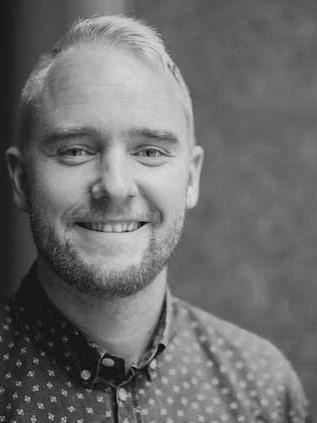Henrik Larsen
Field of research: Innovation and sustainability transition studies
Describe your field of work and current role
I work as systems analyst with the sustainability transitions programme at the European Environment Agency, where I help produce actionable knowledge and deliver targeted systems analyses to inform EU policy implementation to accelerate and scale up transitions to sustainability. I coordinate and implement integrated assessments on the impact of interactions, feedbacks, and trade-offs between socio-technical and socio-ecological systems and the cumulative effects of transitions across multiple systems. I also help design forward-looking approaches to analyse the multiple pathways for sustainability transitions by linking policy interventions in production-consumption systems to long-term socio-economic outcomes and environmental impacts. Finally, I am contributing to the development of a transitions-oriented indicator framework and a corresponding set of indicators that allow for systems assessment and meaningful comparison of transition dynamics between and across societal systems with a view to eventual standardisation of measurement practice.
What has your path been from starting at university until today?
I have a background in innovation and sustainability transition studies with a PhD awarded from Imperial College London in 2019. My doctoral research at the Centre for Environmental Policy focused on the role of innovation and opportunities for policy to transition energy, mobility and food systems toward more sustainable modes of production and consumption. Since 2019, I have worked at the science-policy interface for several years, engaging with various research and policy organisations to strengthen the knowledge base on sustainability transitions and transformative change. As a postdoctoral researcher at the UCL Institute for Sustainable Resources, my work focused on the design, implementation, and evaluation of new forms of transformative and mission-oriented innovation policy. My postdoctoral research at Copenhagen Business School focused on mapping and assessing the organisational capacities needed in public sector organisations in the complex governance of sustainability transitions. In 2023, I started working at the European Environment Agency.
What can be done to strengthen applied STEM research & innovation in Denmark?
To create a leading science and engineering region, the Danish innovation ecosystem needs to be further strengthened by promoting cross-disciplinary collaboration and breaking barriers to engaging in STI-based entrepreneurship. This involves developing strong academia-industry linkages, providing regulatory protection, and funding for early-stage basic and applied research coupled with strategic investments in high-tech sectors. But the distributed but coordinated agency that underpins innovation processes entails there is also a need to consider demand-side conditions and to learn from the diffusion of innovation into relevant parts of society by involving citizens as testers and users of new products, processes, and services. A more systemic view of innovation directs attention away from a singular focus on supply-side actors of innovation to interactions in networks comprised of a broader and more diverse set of actors.
What will you use your YATSI membership for?
Through my YATSI membership, I hope to help promote a challenge-driven research and innovation policy agenda that meets economic policy objectives while also inducing directionality and processes of transformative change toward a broader range of societal and environmental objectives. This certainly includes strengthening collaboration between academia and industry and supporting young entrepreneurs in delivering scientific and technological breakthroughs with a variety of potential applications. However, a singular focus on science-driven innovation pushed by investment in R&D resulting in technology-mediated change without considering necessary social and behavioural changes in established habits and lifestyles is too restrictive. Tackling the scale and complexity of sustainability challenges we face today requires systemic changes in our core modes of production and consumption. This necessitates a variety of social and technological innovations to be developed in an array of sectors and diffused throughout a wide range of functional domains.
Who’s the person behind the member?
I have a passion for exploring new places and have spent many years studying and living abroad, particularly in Brazil and the United Kingdom. I’m a big music lover and enjoy attending concerts and festivals. Living in the center of Copenhagen, I try to take advantage of the many cultural activities the city has to offer. Additionally, I’m a bit of a sci-fi nerd and books and movies take up quite a bit of my free time. I also enjoy spending time in nature, which helps me recharge my energy and gain a fresh perspective on things. Since becoming a father, I’ve had less time for such activities and currently spend most of my time outside of work taking care of my little one.
